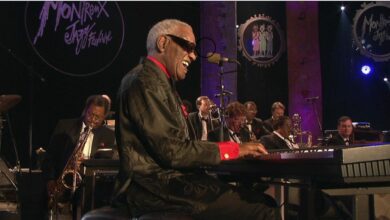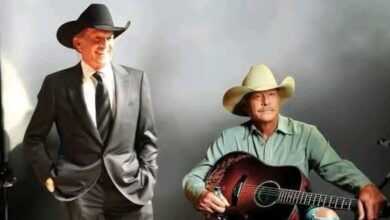Clive Dunn’s “Grandad” Captures the Heart of a Nation with Sentimental Simplicity in 1970
When Clive Dunn released “Grandad” in November 1970, few could have predicted that the modest novelty song would strike such a deep emotional chord across generations. Performed by a beloved character actor best known for his role in the wartime sitcom Dad’s Army, “Grandad” was not just a whimsical detour—it was a full-blown chart success that reached No. 1 on the UK Singles Chart in January 1971. At a time when glam rock, soul, and psychedelic sounds were shaping the cultural narrative, Dunn’s gentle ode to aging and family cut through with its innocent charm, proving that sincerity still had a place in pop.
Clive Dunn was born in 1920 in London and had a varied career in entertainment long before stepping into the recording booth. After serving in World War II and enduring years as a prisoner of war, he transitioned into television, where he found fame playing elderly characters despite being decades younger in real life. His portrayal of Lance Corporal Jones in Dad’s Army, which began airing in 1968, endeared him to British households. With his comedic timing and eccentric warmth, Dunn embodied a kind of nostalgic British spirit that resonated strongly during the postwar cultural transition.
The inspiration behind “Grandad” came from songwriters Herbie Flowers and Kenny Pickett. Flowers, a respected session bassist who would later play with T. Rex and David Bowie, joined forces with Pickett to write a song that blended whimsy with warmth. Initially, “Grandad” was conceived with the hope that someone older—like Sir Harry Secombe or Wilfred Brambell—might record it. But Clive Dunn’s growing popularity and his convincing portrayal of seniority made him the perfect fit. The lyrics painted a simple, affectionate picture of a grandfather figure adored by his grandchildren, recalling the innocence of bygone days.
The song was recorded with a children’s choir, giving it a sing-along quality that enhanced its appeal to families. The instrumentation was intentionally basic—light strings, piano, and subtle brass flourishes—which allowed Dunn’s gently spoken-sung delivery to sit front and center. Producer Robin Blanchflower, better known for his work in radio and children’s television, ensured the arrangement retained an air of lighthearted sincerity without tipping into parody. Dunn didn’t overact the role; instead, he leaned into his warm, avuncular tone, delivering each line with affection and restraint.
Upon its release, “Grandad” gradually climbed the charts, reaching No. 1 in January 1971—appropriately just days before Dunn’s 51st birthday. It held the top spot for three weeks, making him, at the time, one of the oldest artists to top the UK Singles Chart. The song also found success internationally, though to a lesser degree, charting modestly in places like Ireland and Australia. Importantly, it became a fixture on children’s programs and was frequently played at birthday parties and family gatherings, solidifying its place in domestic life.
Culturally, the song arrived during a time of generational friction. The youth-led counterculture of the late 1960s was still in full swing, yet there remained a longing for the values and familiarity of family life. “Grandad” offered a rare bridge between generations—it wasn’t rebellious or ironic, but earnest and affectionate. It reminded listeners of the importance of elders in an era increasingly focused on youth. For many, it became a nostalgic reminder of grandparents lost, a theme that extended far beyond the confines of pop.
For Clive Dunn, the success of “Grandad” brought unexpected musical fame. Though he had no intention of pursuing a full-time music career, the song’s popularity led to the creation of a BBC children’s show titled Grandad, which ran from 1979 to 1984 and featured Dunn reprising the lovable elder persona. The success also demonstrated the depth of his appeal—he was not just a television actor, but a national figure capable of moving audiences in multiple mediums.
The song’s influence on pop was subtle but notable. It opened the door for more novelty or character-driven singles to be treated seriously in the charts. While often seen as a novelty hit, “Grandad” helped reframe how character songs could still hold emotional resonance. It prefigured later heartfelt, whimsical singles like Peter Kay’s “Is This the Way to Amarillo?” and even the rise of children’s performers on mainstream charts.
Though “Grandad” has not been widely covered in the traditional sense, its legacy lives on through countless parodies, tributes, and re-airings. It has been referenced in comedy sketches, children’s programming, and nostalgia shows, often accompanied by warm audience recognition. The BBC would replay it on anniversaries of Dunn’s birthday or the passing of major Dad’s Army cast members, keeping its memory alive in public consciousness.
Around the time of the song’s release, Clive Dunn was also navigating the height of his television fame. While other actors from Dad’s Army pursued more serious roles, Dunn leaned fully into the public’s affection for his elderly alter ego. His comfort with this identity made him a rare example of an entertainer who embraced typecasting not as a limitation, but as a platform to connect more deeply with audiences of all ages.
Today, “Grandad” remains a charming relic of a different era in British pop culture. It appears on novelty compilations and retro family playlists, and while it may not receive regular airplay, it’s instantly recognizable to those who lived through its release. For many in the UK, it’s more than a song—it’s a memory wrapped in melody, a soundtrack to simpler family moments.
The song’s legacy also serves as a reminder of a time when music could be lighthearted without being frivolous—when tenderness, not tension, was enough to capture the nation’s heart. “Grandad” achieved that rare balance of sentiment and accessibility, managing to appeal to children, parents, and grandparents alike without a hint of irony.
Though Clive Dunn passed away in 2012 at the age of 92, the impact of “Grandad” lives on. He never needed a string of hits or a headline-grabbing career to leave his mark. With one unassuming, heartwarming tune, he etched himself into the cultural fabric of British music history.
“Grandad” endures not because of technical brilliance or production innovation, but because it dares to be simple and sincere. In an era obsessed with reinvention, it reminds us of the power of warmth, memory, and family—a song that continues to echo, gently and fondly, across the years.



